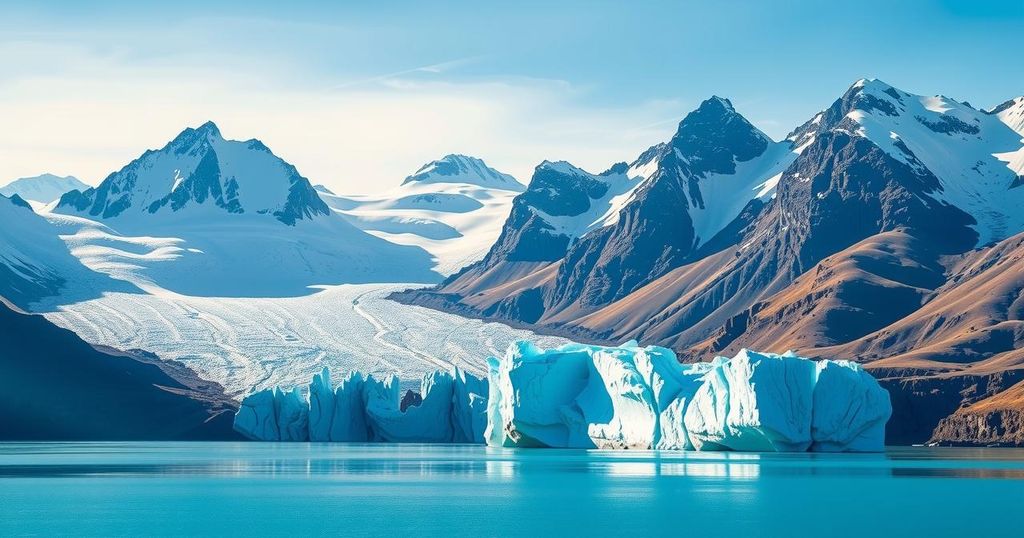World news
ARCTIC, ASIA, CHINA, COPENHAGEN, DENMARK, DONALD TRUMP, EGEDE, EUROPE, EUROPE/ASIA, EUROPEAN COMMISSION, EUROPEAN UNION, GREENLAND, INTERNATIONAL RELATIONS, KINGDOM OF DENMARK, MET, METTE FREDERIKSEN, MEXICO, MUTE EGEDE, NATO, NORTH AMERICA, POLITICS, RUSSIA, TRUMP, U. S, UNITED STATES, US, US PRESIDENTIAL ELECTION, WASHINGTON
Lena Nguyen
0 Comments
Greenland Elections: Evaluating Options Between the U.S., Denmark, and Independence
Greenland’s parliament elections on March 11 attract global attention following President Trump’s interest. Most locals do not desire American governance, with three parties advocating for independence from Denmark. However, economic dependency complicates the desire for autonomy. The situation raises questions about future relations with the U.S. and the implications of potential independence.
The elections for Greenland’s 31-member parliament, the Inatsisartut, have gained increased global attention following U.S. President Donald Trump’s interest in the territory. Although Greenland is a small island with a population of approximately 60,000, Trump’s remarks in January stirred discussions around its political and economic future, particularly concerning its affiliation with the United States or ongoing ties with Denmark. Greenland’s Prime Minister, Mute Egede, has scheduled the elections for March 11, positioning the outcomes as pivotal in navigating between American influence, Danish support, or pursuing complete independence.
It is essential to note that the majority of Greenlanders do not aspire to become American and no political party openly endorses this change. The island, which operates under a degree of autonomy within the Kingdom of Denmark, is vested with the decision-making power of its own populace while Denmark retains control over its foreign and monetary policies. Recently, the Greenlandic parliament took a significant step by outlawing anonymous and foreign campaign contributions during this electoral process.
The U.S. has shown interest in Greenland since the 19th century, which is strategically positioned closer to North America than Europe. Operational U.S. air bases have assured Greenland’s security, and as the Arctic continues to evolve due to climate change, areas are opening for potential economic opportunities. In this context, discussions surrounding possible trade agreements or association arrangements between Greenland and the United States are anticipated, even if statehood is not an immediate prospect.
However, the Greenlandic population is traditionally conservative, with many valuing their homeland’s preservation over commercial interests. Past elections have demonstrated a collective intention to restrict oil and gas exploration, reflecting a desire among residents to protect their environment. Currently, only two mining operations exist in Greenland, highlighting the delicate balance between economic potential and environmental conservation.
Three of the five political parties contesting the elections are proponents of independence from Denmark, including Prime Minister Egede’s left-wing Community of the People party, which has received popular support and is expected to lead in the polls again. Additionally, the ruling coalition’s partner, the social-democratic Forward party, aspires for a strong electoral finish. Conversely, the liberal Democrats party, favoring continued union with Denmark, may affect coalition dynamics.
While there is a clear desire for independence amongst the populace, many Greenlanders prioritize the maintenance of their current standard of living, which is heavily reliant on Denmark. Historically loyal to the Danish crown, a significant portion of Greenland’s economy revolves around exports and imports from Denmark, with half of the employed population working in public sectors funded by Danish grants. Denmark has also recently promised substantial investment to bolster its Arctic presence.
For Greenland to officially pursue independence, multiple steps are necessitated, including negotiations with Denmark, an affirmative outcome from a nationwide referendum, and subsequent approval from the Danish parliament. Pro-independence factions are advocating for a referendum within the forthcoming four-year mandate, yet the complexities surrounding such a significant transition may hinder the feasibility of this timeline.
The impending elections in Greenland are crucial, as they may dictate the island’s political allegiance and future autonomy. With most political parties leaning towards independence while being reliant on Danish support, the voters of Greenland face a significant decision. The outcome may influence not only local governance but also international relations, especially concerning the United States and Denmark. The aspirations for independence are complicated by the need for economic stability and support, making these elections a pivotal moment in Greenland’s history.
Original Source: oilprice.com




Post Comment